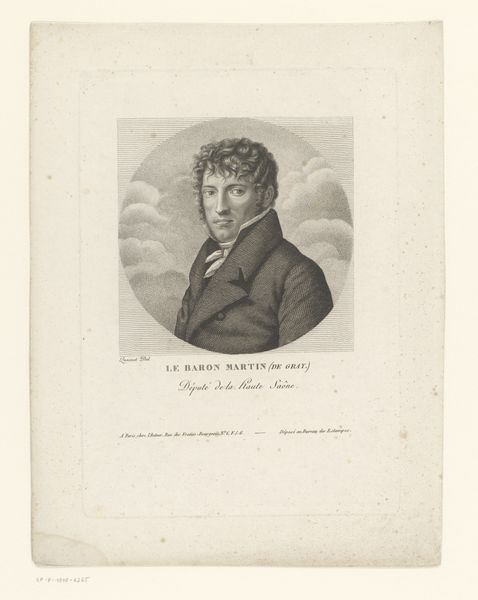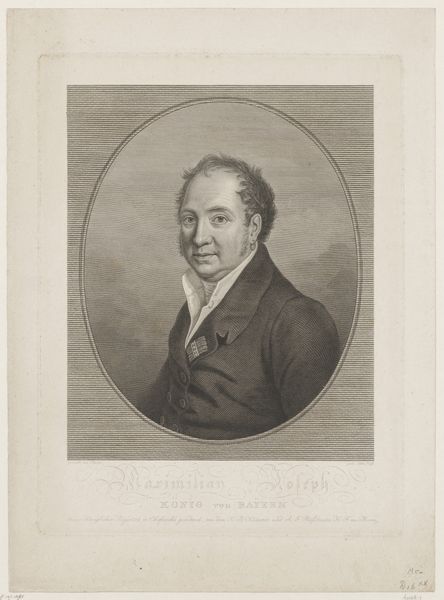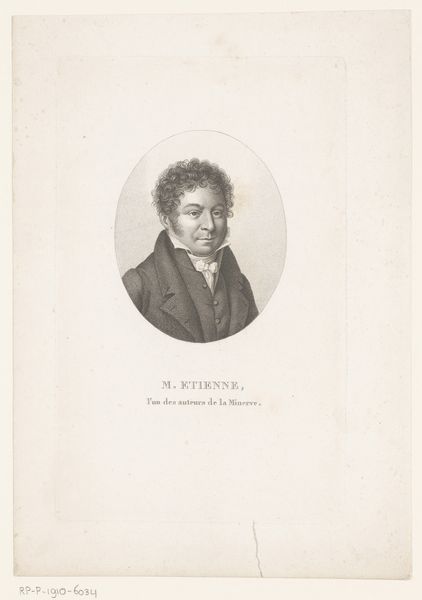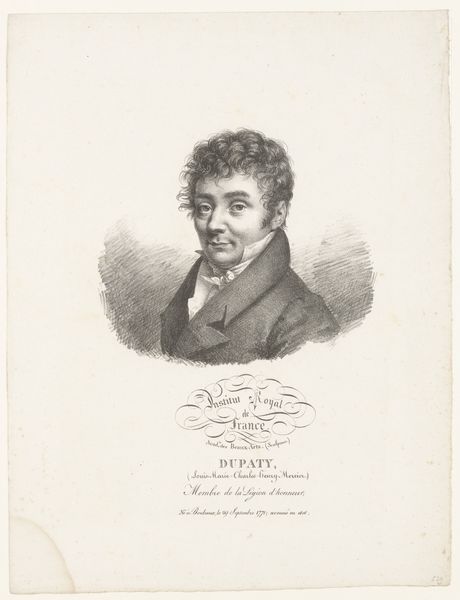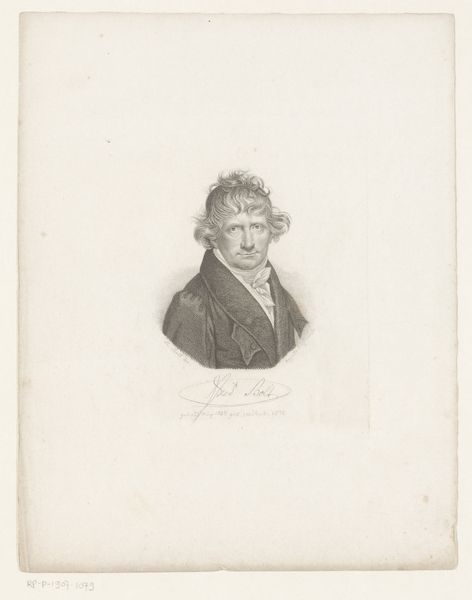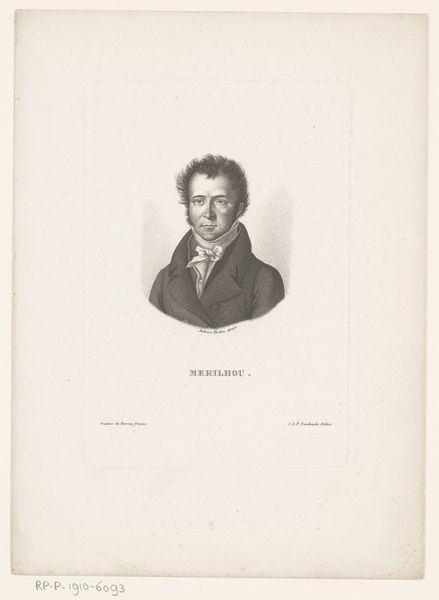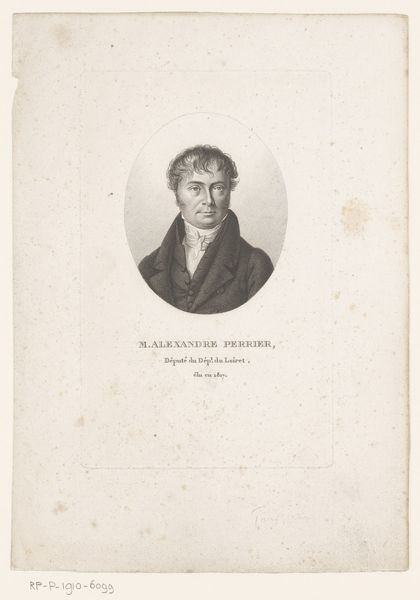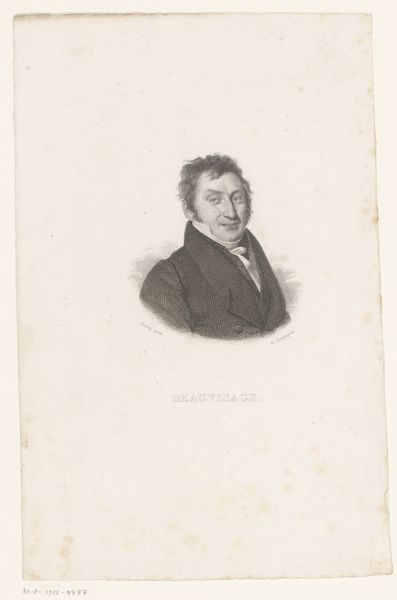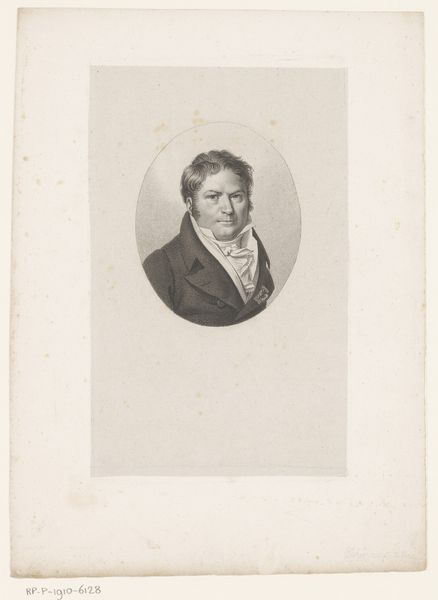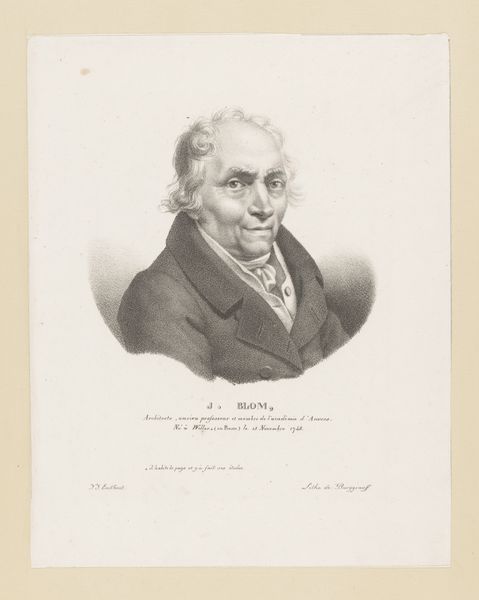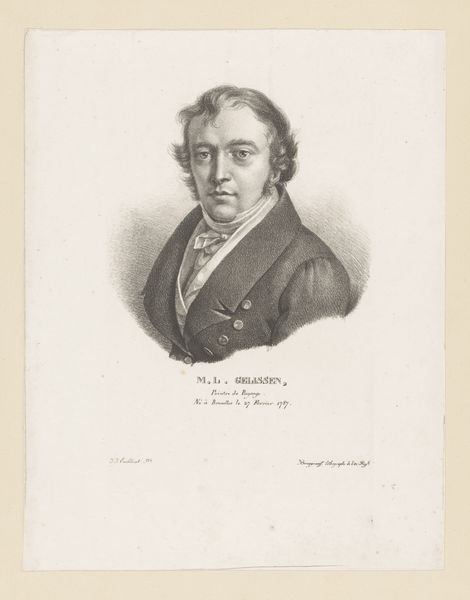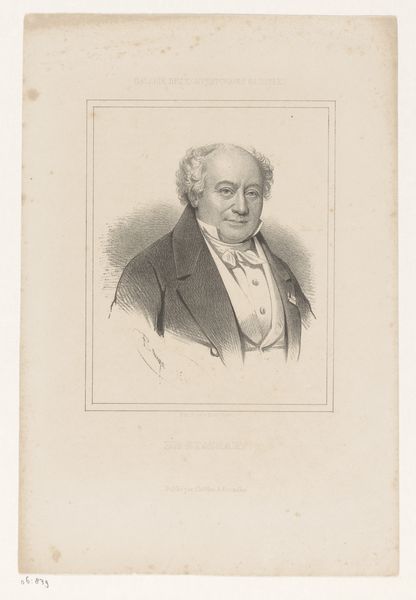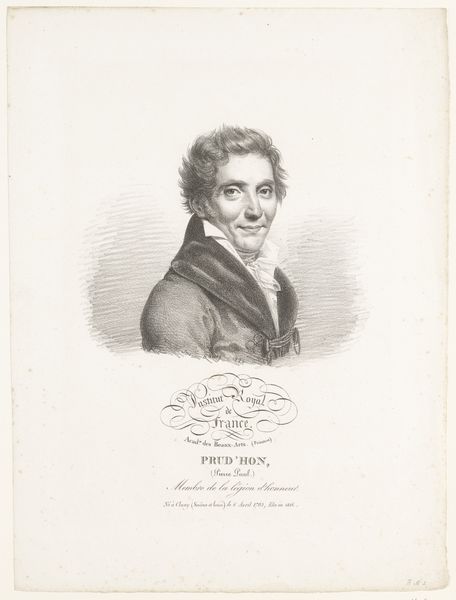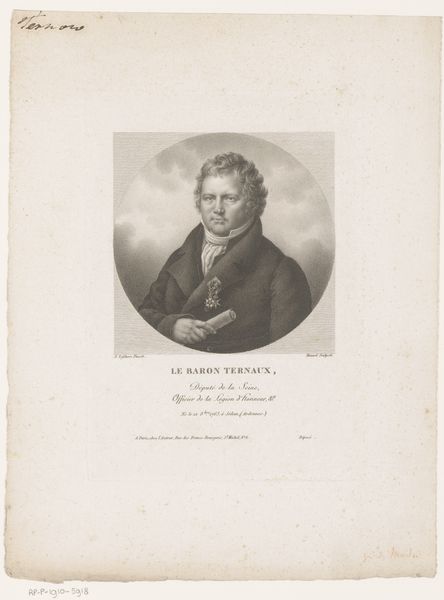
drawing, print, paper, graphite, engraving
#
portrait
#
drawing
#
neoclacissism
#
aged paper
# print
#
figuration
#
paper
#
pencil drawing
#
line
#
graphite
#
academic-art
#
engraving
#
realism
Dimensions: height 210 mm, width 151 mm
Copyright: Rijks Museum: Open Domain
Editor: So this is "Portret van Jean Louis Auguste Loiseleur-Deslongchamps" created by Ambroise Tardieu in 1827. It's a drawing or print, and it feels very formal. The subject is framed in an oval and stares directly at the viewer. How would you interpret its historical context? Curator: Considering its time, we see the residue of the Neoclassical style. The piece presents Loiseleur-Deslongchamps—botanist and physician—within a very particular cultural framework. The man’s portrayal is intended for public consumption, aimed at conveying a certain level of intellectual and social status within the French academy. The question becomes: How does the artist leverage visual language to contribute to the subject's public image and reputation? Editor: I see what you mean. The precision of the lines, the almost photographic detail – it lends him an air of authority, doesn't it? It feels very deliberate, this construction of image. Curator: Precisely. The engraving is not merely a representation; it's an active construction of his persona. In whose interest was this persona created? Was it simply to celebrate the man or also to promote the values of the institutions with which he was connected? Think about who would have commissioned or bought such a portrait, and why. Editor: I guess I hadn't considered that the art isn't just about him, but about the entire system. The Royal Academy is trying to build its reputation, too, through him. Curator: Absolutely. The politics of imagery is at play here. So it leads us to ask: what other purposes does a piece like this serve beyond a simple likeness? Editor: That’s a fascinating way to think about portraits; as tools that institutions use to project power! I’ll definitely look at these kinds of pieces differently from now on.
Comments
No comments
Be the first to comment and join the conversation on the ultimate creative platform.
